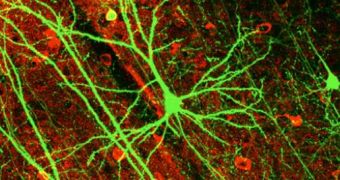Neurogenesis – the process through which the brain produces new nerve cells to replace damaged ones – has been linked to a protective effect against stress. Past studies have shown that new neurons can also protect against mental disorders such as depression.
Investigators from the National Institute of Mental Health (NIMH), which is a part of the US National Institutes of Health (NIH), carried out the research on unsuspecting, adult lab mice. They used the rodents because they provide a reliable proxy for the human brain.
What the work implies is that slow or inexistent neurogenesis may be one of the reasons why depression develops in the first place. In other studies, researchers showed that an area of the brain called the hippocampus is responsible for producing new nerve cells.
This region plays a role in the formation of memories, as well as in other high cognitive functions. Neurons that form here then go on to migrate to the areas of the brain for which they were created.
NIH experts say that the effects of stress exposure on the hippocampus are devastating. The hormones that are triggered in the brain when people go through a negative experience can severely slow neurogenesis, or even stop it altogether. This may set the stage for the onset of depression.
The reason why both antidepressants and physical exercises are effective treatments against depression is that they both enhance the natural process of creating new neurons, essentially allowing the brain to heal itself, PsychCentral reports.
In the new experiments, the science team demonstrated that mice in which neurogenesis had been artificially suspended had much higher levels of the stress hormone corticosterone in their blood and saliva more than 30 minutes after a negative experience.
By that time, normal mice that had been put through the same ordeal had gotten past the events, displaying normal levels of the hormone. What this suggests is that a lack of neurogenesis leads to impaired stress recovery.
The new research was carried out primarily in order to determine whether losing the ability to produce new neurons leads to depression directly. This causal relation was not demonstrated, but NIMH experts were able to determine the influence of new neurons on the condition once it was already developed.
Experts now hope to use the new findings for developing new and advanced treatments against depression. The work may provide additional targets for novel antidepressants that will have considerably fewer side effects than existing drugs.

 14 DAY TRIAL //
14 DAY TRIAL //